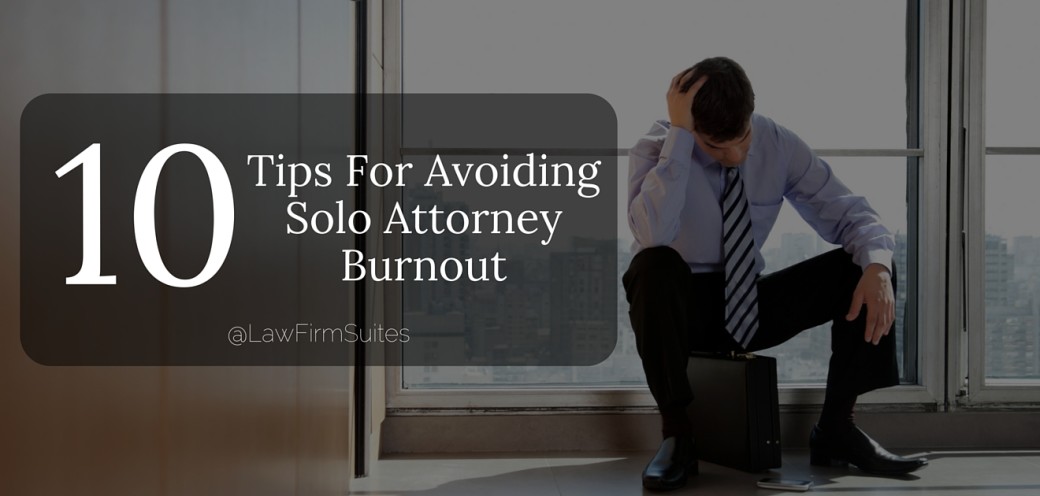Running a solo law practice isn’t easy. Civil litigation attorney Kerith Kentish shares his best tips for avoiding solo attorney burnout.
I live in a quiet, eel-shaped haven in the Caribbean called Anguilla — the Perfect Postcard. While life on an island seems like the ideal gig, most times it’s just business as usual. Running my own law practice is challenging work, and even though it may be fair to say legal practice here is less fast-paced than in New York, the solo attorney burnout is real.
I recently read a post from the Things I Wish I Knew blog series, where family law attorney Joleena Louis discussed why solo attorneys experience burnout in their practice. It got me thinking about how I manage my solo practice and what steps I take to stay motivated.
Here are ten things that work for me:
1. Learn delegation
Solo practitioners are ambitious and we work hard. The problem is that sometimes we want to do everything ourselves.
The biggest favor you can do yourself as a solo attorney is learn how to properly delegate.
What I don’t mean by delegation is dropping a file on a clerk’s desk, shooting a random instruction with a deadline and bolting to your office to cross it off your to-do list.
Solo attorneys must delegate tasks with full and defined instructions to someone who is competent, trustworthy and dependable. If not, you are likely creating more work for yourself.
The biggest favor you can do yourself as a solo attorney is learn how to properly delegate. Click To Tweet2. Have a good relationship with your staff
If you’re lucky enough to have staff, I think it is important for any legal practitioner, particularly the solo, to have a positive relationship with their staff. It doesn’t take much effort to learn the names of their children, to ask about their families, or to remember their birthdays.
This builds loyalty and likeability. You will need loyalty and likeability for those days when you’re feeling overwhelmed and you need to rely on your staff for support.
If you have been a jerk throughout their employment, as opposed to showing a genuine interest in their lives, there is a greater likelihood that they could end up abandoning you when you need them most.
3. Filing
One of the worst things that can happen is having a document go missing in the office because you’re disorganized. You can cut down on a lot of stress by ensuring you have an effective, easy-to-follow filing system in place.
Additionally, you should also always have an electronic version of the file in the event that the hard copy goes missing. Whenever documents come into my office, they have to be scanned and saved electronically before they reach my desk.
4. Create bonds with other solo practitioners
Recently, I have been focusing more on my relationships with other solo practitioners because I believe there is great value in sticking together.
Who better to understand the challenges of being a solo attorney than another solo attorney? I find that I am constantly trading favors with other lawyers, seeking advice and even getting referrals.
Once I was able to have a colleague request an adjournment for me when I was too sick to appear in court. In return, I completed some research for her when she did not have access to Westlaw.
Having people to talk to who understand my situation helps reduce my stress level. I know I can rely on these attorney relationships when I need help in a pinch, or if I need advice on a case.
Having people to talk to who understand my situation helps reduce my stress level. Click To Tweet5. Create bonds with court staff
Being friendly and likeable can sometimes create efficiencies. For example, if your client wants a matter heard before the Christmas holidays, it might help you if you were on good terms with the listing manager (our equivalent of your court clerk) and even the judge.
If a judge asks you to take a file amicus, do not shy away from volunteering. It is an opportunity to possibly learn a new practice area, and you’ll earn more favor and respect.
In our system of practice, an attorney’s matters get called in order of his or her seniority at the bar. However, I once volunteered to take a file and appear amicus. As a reward, the judge allowed me the opportunity to have my matters called first for the next three hearings I had with her.
6. Take mini-vacations
I try to take several mini-vacations, even if it is just the weekend. If I have a long weekend coming up, unless I have filing deadlines, I usually take a day off and fly out early.
Sometimes, I simply work two days at home. This helps get me away from a ringing telephone and other distractions common to the workplace. Working at home is not really a mini-vacation, but I am always amazed at the work I get done and how it impacts my stress level.
7. Set time aside for business development
In my experience, solo practitioners tend to forget that there is a business side to law. As a solo attorney, you are the marketing team, you are the administrative team, you are the accounting department and you are the inventory manager.
Since October, I have been earmarking Fridays for marketing and administration: billings, working on my firm website, inventory, etc. Doing this has created dramatic improvement in the completion of my business goals.
8. Plan your work day strategically
Try to work when you know you’re most productive. If you are a morning person, you might want to see whether it is better for you to have appointments in the morning, or whether it is better for you to come into office at 5 am. The truth is, sometimes I get more work done between 5 am and 8 am than I get done between 8 am and 5 pm.
9. Avoid taking on too much work
Every client thinks their work is urgent, and they will likely come to you at the very last minute with a problem they knew about for weeks. If they are not willing to pay for what they say is urgent, do not take it.
I find that taking on last minute work at rates that do not adequately compensate for the rise in stress level is not worth it. If I’m going to take on more work when I already have a full plate, then I have to be convinced there is a financial incentive.
10. Make time for friends and family
The most important thing I’ve learned from being a solo attorney is to always remember to make time for friends and family. This helps with attorney burnout because the ‘distraction’ of spending time with loved ones is calming.
I am lucky because my office, my house and my grandmother’s house are all on the same road. When I can, I try to eat lunch with my grandmother. It creates a moment to de-stress, even if she wants to talk about my work and what I am doing. The point is that I get to spend time with her.
About Kerith Kentish




on said:
This article is a must read for all solo practitioners. Well said Mr. Kentish!!
on said:
Very insightful. I agree with every single suggestion.
on said:
Nice advice Mr. Kentish. Thank you.